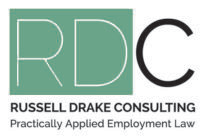Case Studies

Internal Investigations
Increasingly employers are being required to consider whether a concern or complaint needs to be investigated prior to a formal disciplinary process being implemented. Generally, this will require a gathering and assessment of the facts prior to a decision on potential disciplinary action being made. To seek to move to a disciplinary process without undertaking

Is the Public Holiday and “otherwise Working Day” the same for the Employee
With Christmas fast approaching employers are already beginning to face the dilemma as to whether some employees are entitled to payment for not working on the public holidays or not. While it is reasonably easy to assess entitlements to payment for employees that work a regular Monday to Friday work week, it is less clear

Chasing debts from employees
It is not an uncommon situation that an employee terminates their employment and does not return all company property or repay any outstanding debts. Where the employee has wages or annual leave entitlements owing to them, subject to the deduction provisions of section 5 of the Wage Protection Act 1983, some amount of recovery may

Union fails to follow due process in dismissing one of its Organizers
Based on information obtained from the Companies Office, Union Organizations represent 14.30% of the total New Zealand workforce. The unions exist to provide employment relations support to their members and to lobby for worker rights and entitlements at a national level. To fulfil these functions, the Union will employ individuals into the role of a

What do we mean by the term “Fair and reasonable lawful instructions”? Russell Drake explains
Almost all lists of actions that may constitute potential serious misconduct contained the statement “Failure to follow fair and reasonable lawful instructions” – however it often becomes subjective as to what this actually means. For one employer an employees continued use of inappropriate language in the workplace after having been spoken to may constitute a

When does a notice period begin and end?
For many employers it has always been accepted that, if an employee resigns or is terminated from their employment, the date on which the notice was given becomes the first day of the contractual notice period. A recent decision from the Employment Relations Authority may make you rethink this. Ms Sheridan was employed by Pact
Want to find out how we can provide your business with legally compliant, practical solutions to resolve your employment relations and Human Resources in Operations Management problems? Give our friendly team of experts a call today.

Call now for an obligation free conversation to discuss your needs.
We are proud to service clients across New Zealand and some Australian businesses who have divisions in NZ.
